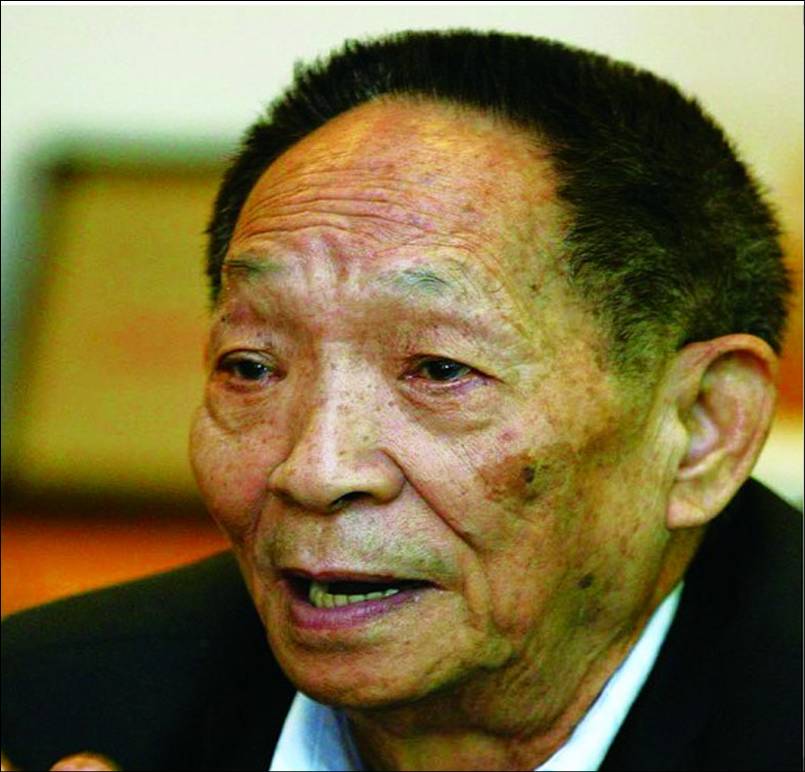From Nation, page 13, issue no. 361, March 31, 2008
Translated by Zuo Maohong
Original article: [Chinese]
"Grain stores in at least two places [in China] are lying empty," Yuan Longping, China's renowned agriculture scientist, told the country's top legislative assemblies in March. Yuan is known as the "father of hybrid rice", which he developed in the 1970s and are now grown in dozens of countries in Asia, Africa and the Americas.
In response, the Chinese State Administration of Grain launched an investigation into the grain reserves in Hunan province's Hongjiang, where one national and 18 local level grain stores are located; the latter are privately run.
Though claiming the situation "is not as bad as he [Yuan] made it out to be", one investigator who declined to be named also didn't refute Yuan's assertion when the EO inquired about the findings.
In Jiangshi, a township in Hongjiang, the EO found the three grain stores there were rented out to a local timber processor and other operations. An official known as Zhou from the Hongjiang Municipal Grain Bureau also admitted that some stores had been converted for business purposes rather than holding grains.
According to state regulations, grain reserves are divided into national and local levels. In Hunan province, local law requires all counties to have grain reserves storage. However, not all counties met the requirement.
In Hongjiang, where 90% of its populations are farmers but each has less than one mu (1/15 hectare) of land for cultivation, food production and security is rather low and depend largely on external supplies. However, it has failed to develop a grain reserve system due to lack of funding, thus grain stores are not put into use.
According to the above-mentioned investigator, the 18 privately run grain stores in Hongjiang were not assigned officially or hold no obligation to store grain reserves.
Meanwhile, the local official Zhou said private stores neither enjoyed central nor local government subsidies, thus the problem boiled down to a lack of funds.
Zhou lamented that the local treasury had long neglected local grain reserves due to financial constrains; instead, most funding went to the more urgent urban development and expansion.  Following the investigation, the EO caught up with Yuan Longping again, this time in the fields of the "super rice" research and development base in south China's Sanya. Yuan is now a political consultant and a scholar at the Chinese Academy of Engineering. Below is the excerpt of the exclusive interview:
Following the investigation, the EO caught up with Yuan Longping again, this time in the fields of the "super rice" research and development base in south China's Sanya. Yuan is now a political consultant and a scholar at the Chinese Academy of Engineering. Below is the excerpt of the exclusive interview:
The EO: What are the causes for low grain output over these last few years?
Yuan: Grain prices have been low, and farmers are not so motivated [to grow crops]... But there are also problems when prices are high.
The EO: How can these problems be solved?
Yuan: The government should compensate farmers directly.
The EO: That is happening right now, isn't it?
Yuan: Not like it used to. The case now is every mu (1/15 of a hectare) of land gets subsidies, no matter how much grain it produces. My suggestion is to subsidize according to the amount of grain a farmer sells instead of the acreage of crops he grows. Every jin (500 grams) of grain sold gets a subsidy of 0.1 or 0.2 yuan. The more one sells, the more he is subsidized. In this way, [farmers] will be more enthusiastic, and grain prices won't rise.
The EO: Why wasn't it carried out?
Yuan: I'm wondering too. There are so many kinds of subsidies today, like those for certified seeds and farming machines. They are good, but not treating the root of the problem.
The EO: How did you learn about the empty grain stores?
Yuan: The common people told me. They said the country's granary was empty. There was no grain. Grain stores were empty, or storing other things to make money.
The EO: Could there be false information?
Yuan: I'm not sure, but there are empty stores around.
The EO: Now that the State Administration of Grain has started an investigation...
Yuan: To begin with, it shouldn't be the administration that investigates the case, (raising his voice) but the political consultants and the representatives of the People's Congress. They need to go under cover and investigate secretly. The Administration's director has talked to me in person, but all he talked about was their achievements. [He said] they have their own supervision system, and there wouldn't be such a problem. But even so, one can't find out the truth unless he goes into these places without wearing his uniform.
The EO: What exactly is the total amount of grain in reserve at present?
Yuan: I've no idea.
- China Ups Summer Grain Defences | 2008-04-03
- Soya Bean Oil Shortage Sweeps China | 2008-03-20
- Soya Document Thick With Protectionism | 2008-03-13
- Food Security: Moving Towards the Precipice? | 2008-02-28
- China Afflicted by Global Food Price Surges | 2008-02-27











